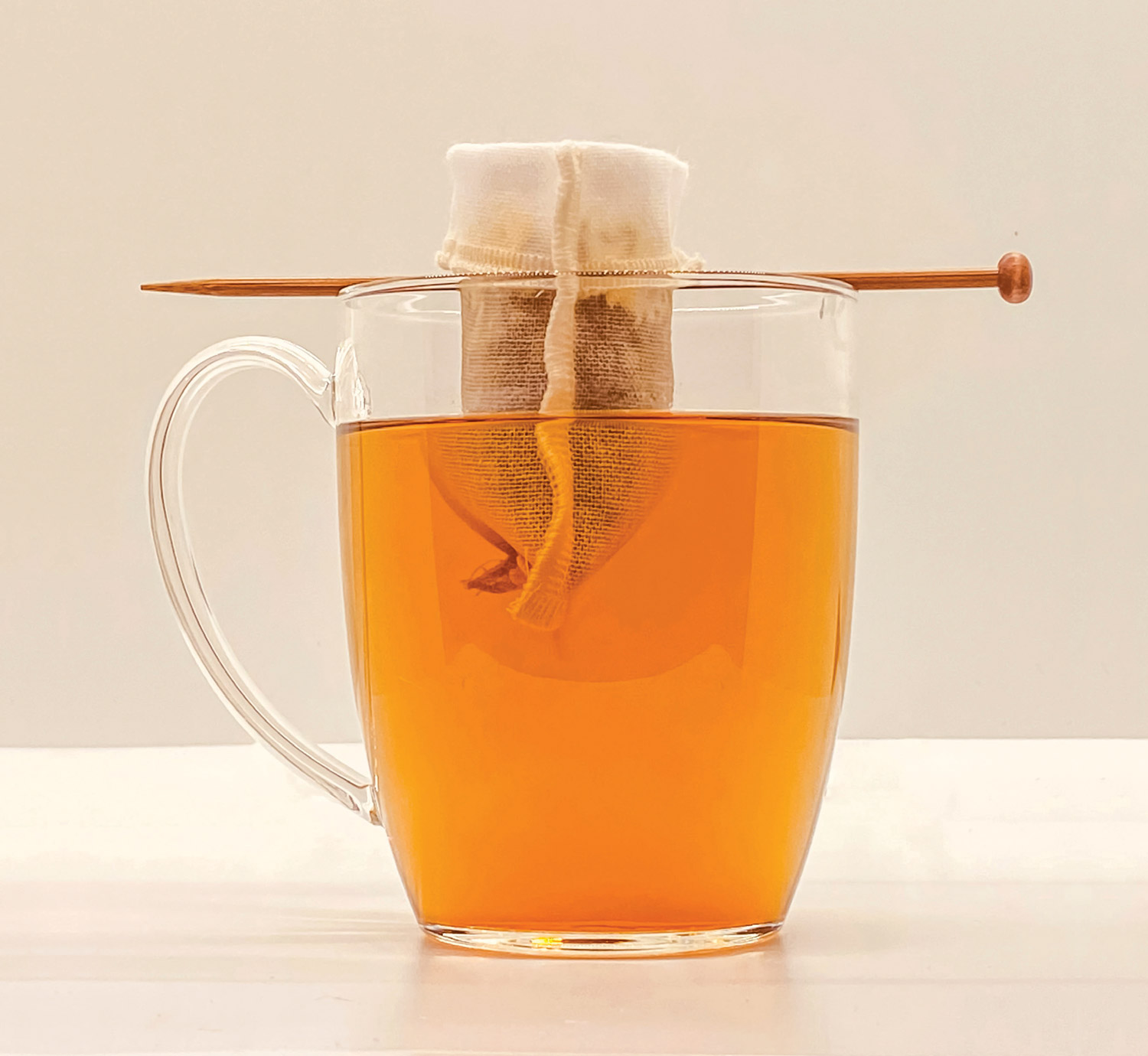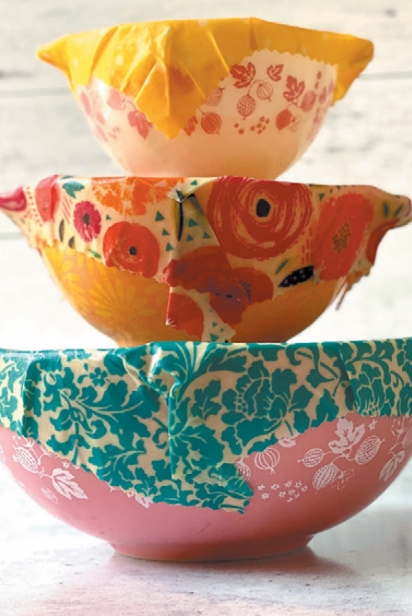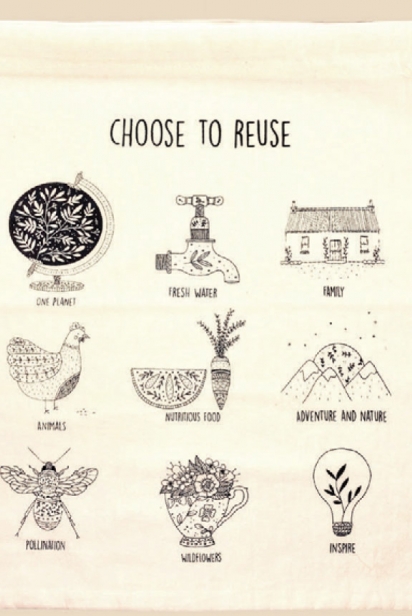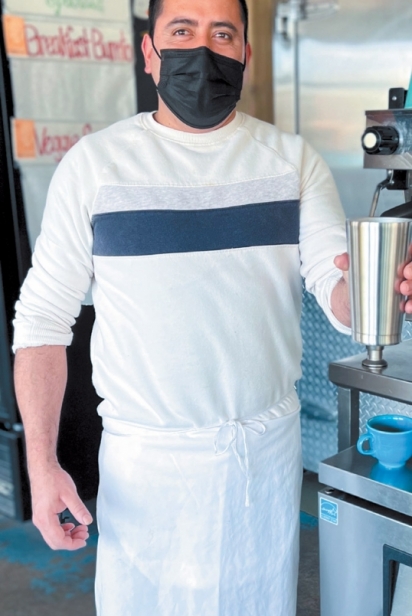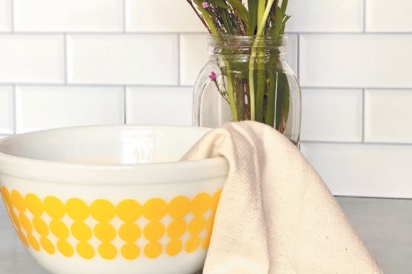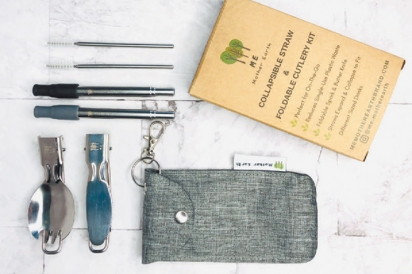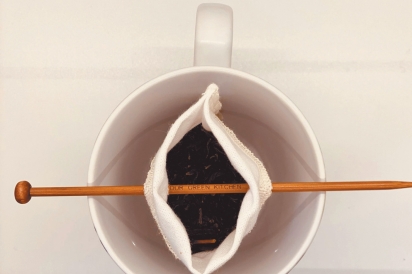Reusables
ZERO WASTE
The notion of “zero waste” has been around for decades, but only recently—as ever-increasing natural disasters and other more subtle but significant effects make it nearly impossible (for most) to ignore the reality of climate change—has the practice been truly embraced.
In 1973, a PhD chemist named Paul Palmer used the term “zero waste” to describe the recovery of all resources instead of burning or burying them. Twenty years later, the Zero Waste International Alliance formed, “to guide people in changing their lifestyles and practices to emulate sustainable natural cycles, where all discarded materials are designed to become resources for others to use.”
Today, countries, states and municipalities recognize the threat that landfills and their methane gas emissions pose to their communities, and the planet at large, and are actually enacting zero waste legislation. Early this year, California implemented a landmark composting law (SB 1383) requiring everyone in the state to compost food scraps and other materials in an effort to slash methane emissions. The goal is to reduce by a whopping 75% the amount of compostable material diverted into landfills by 2025. In Marin County, a final draft of a countywide reusable foodware ordinance prohibiting single-use plastics is scheduled to come under review in February, with plans for adoption by the spring and implementation in the fall of 2023.
Across the North Bay, grocers and retailers are stepping up to offer consumers a wide array of low- and zero-waste items designed specifically to make converting to a non-disposable way of life not just doable, but a pleasure. Dawna Mirante, the owner of Petaluma’s Refill Mercantile that opened last fall, says that her mission is to help individuals “reduce consumption, reuse everything possible, refill reusable containers and recycle them at the end of their life.” We asked Mirante to suggest five essential kitchen items that everyone should have as they transition to a low- and zero-waste lifestyle.
Reusable “Paper Towels”
“Let’s chat about our paper towel obsession,” says Mirante. “They are made from recycled material but can’t, themselves, be recycled after use.” Non-paper “paper towels” are a solution. Mirante loves Swedish Cloths for replacing paper towels. “They are thin, super-absorbent cloths made of 70% earth-friendly (FSC certified) cellulose and 30% organic (Fair Trade & GOTS) cotton. They absorb 20 times their weight, replacing up to 17 rolls of paper towels. And they air dry quickly, so they don’t breed bacteria or smell and are machine washable (approximately 200 washes) and compostable at the end of their life.”
Reusable Cotton Produce Bags
Say goodbye to plastic bags! Certified organic cotton drawstring bags are great for taking to the grocery store or farmers’ market to hold produce. They can also double as unique reusable gift bags or to stylishly hold your on-the-go lunch.
Reusable Food Wraps (beeswax or vegan)
Reusable wraps are a sustainable alternative to plastic wrap for food storage, made from 100% organic cotton and coated with responsibly harvested beeswax or a plant-based vegan alternative made from ingredients such as candelilla wax, soy wax, organic coconut oil and tree resin. These wraps are reusable, washable and fully biodegradable when it’s time to discard them.
Reusable Cutlery Kits
We’ve all experienced the awful feeling of throwing away plastic cutlery and straws provided with most “to go” meals. Collapsible straw and cutlery kits fit perfectly into even a small purse so you can carry them with you everywhere. “Our kit includes a spork [spoon and fork combo] and knife that fold down to fit in the cute carrying pouch that also holds two collapsible stainless-steel straws with silicone tips and two straw cleaning brushes,” says Mirante. “This kit has everything you need to help reduce waste when on the go.”
Reusable Tea Bags
“Most people do not know that most tea bags contain microplastics—not all do, but the majority,” says Mirante. Organic fabric tea bags reduce waste in your daily tea routine, as well as keeping those microplastics out of your body and the environment.
Source Guide for North Bay low and zero-waste retailers:
Refill Mercantile, Petaluma (RefillMercantile.com)
Ambatalia, Mill Valley (NonDisposableLife.com)
Good Earth, Fairfax and Mill Valley (GENatural.com)
Sustainable Exchange, Novato (SustainablExchange.com)
Silo Package-Free Pantry, Petaluma and at area farmers’ markets and online (TheSilo.com)
Homebody Refill, Sebastopol (HomebodyRefill.com)
Refill Madness, Sonoma (RefillMadnessSacramento.com)
Estuary, Petaluma (ShopEstuary.com)
Maison Verte, St. Helena (MaisonVerte.us)
Heritage Alchemy, Santa Rosa (HeritageAlchemy.com)
Lunchette, Petaluma (LunchettePetaluma.com)
CommUnity ReUseables
Mill Valley’s Molly Hennessey de Vries has been called “The Queen of Green” for her long-term commitment to educating her fellow Marinites about how to protect the environment. For the past two years, de Vries, the owner of Ambatalia, a retail shop offering wares for “a non-disposable life,” has worked in partnership with fellow environmental leaders Greg Walker and Susan Lopes on a new community-wide initiative they named CommUnity ReUsables. Imagine a public bicycle sharing system, but for cups and bowls.
Working in partnership with local cafes and restaurants, CommUnity ReUsables replaces single-use, disposable food and drink containers with durable, reusable vessels, made especially for food businesses. This means that they must be stackable, withstand commercial machine washings, and, for the cups, include engraved “barista lines” indicating beverage sizes.
Every year, roughly 120 billion disposable cups are used and discarded in the U.S alone. In Marin County, all single-use beverage cups, including paper cups labeled as “compostable,” are diverted into landfill. They are not accepted into greenwaste or paper recycling streams. In fact, when mixed with either, they contaminate the rest so it, too, can’t be composted or recycled.
When organic materials like paper, food scraps, yard trimmings and cardboard decompose in landfills, they break down anerobically (without oxygen). Landfills emit methane—a greenhouse gas up to 84% more potent than carbon dioxide—and are the third-largest source of methane in California.
The CommUnity ReUsables pilot program, fiscally sponsored by Marin Link, will use a native app powered by Useful. The app will provide users a map of Mill Valley cafes and restaurants participating in the program where they will be able to check out and return reusable containers. At press time, participating businesses included Equator Coffees cafes, Shoreline Coffee Shop, Coyote Coffee, Cup of Joe’s and Juice Girl—with more coming on board. The organizers’ goal is to create a successful program that will be adopted countywide and provide a model for other communities.


